How Karl Gotch’s Missing Finger and Holocaust Survival Shaped Combat Sports Forever
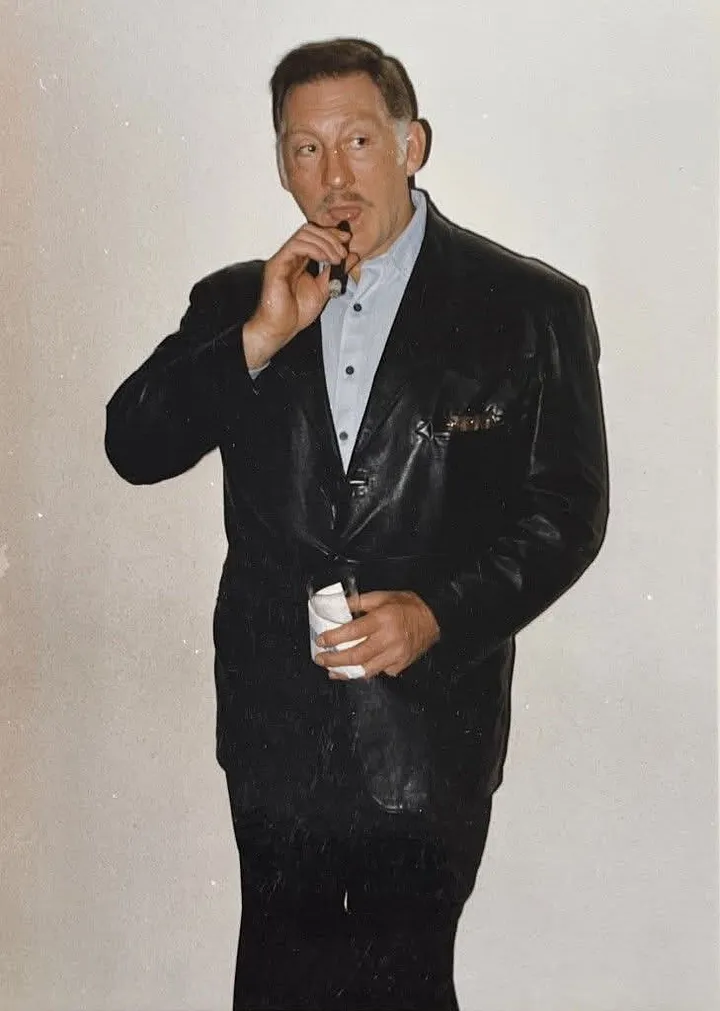
On a cold mat in Japan, a man with four fingers on one hand would change the course of combat sports history. That man was Karl Gotch, whose journey from the docks of Antwerp to Nazi concentration camp survivor to Olympian in Lindon to "God of Wrestling" in Japan represents perhaps the greatest untold story in combat sports. His missing digit and harrowing past weren't just footnotes in his biography—they forged the iron will that would revolutionize fighting across continents.
The Survivor Who Redefined Toughness
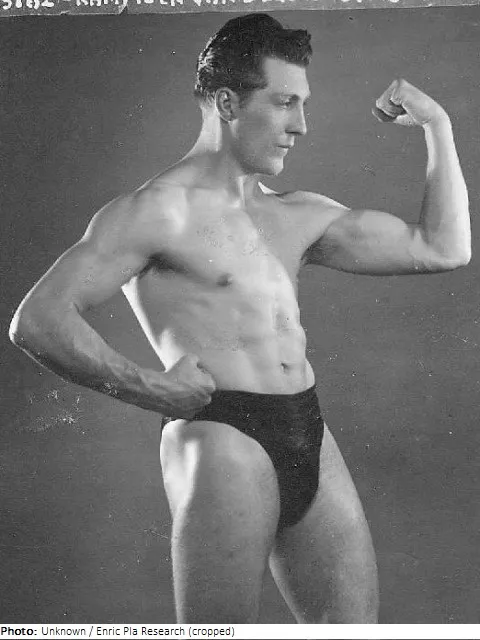
Karl Gotch, born Karel Istaz in Antwerp, Belgium in 1924, faced death before he ever stepped into a professional ring. During World War II, Gotch and his family were imprisoned by the Nazis at REIMAHG (Lager E Camp) in Kala, Germany. Not because they were Jewish, but because his father was an atheist belonging to "The Order of the Buffalo," identified by a three-dot tattoo that caught the attention of Nazi officers.
In the camp, young Karel nearly starved to death before Allied forces liberated him. This brush with mortality would instill in him a resilience few could comprehend. Just three years after his liberation—while most survivors were still rebuilding shattered lives—Gotch represented Belgium in both freestyle and Greco-Roman wrestling at the 1948 Olympics.
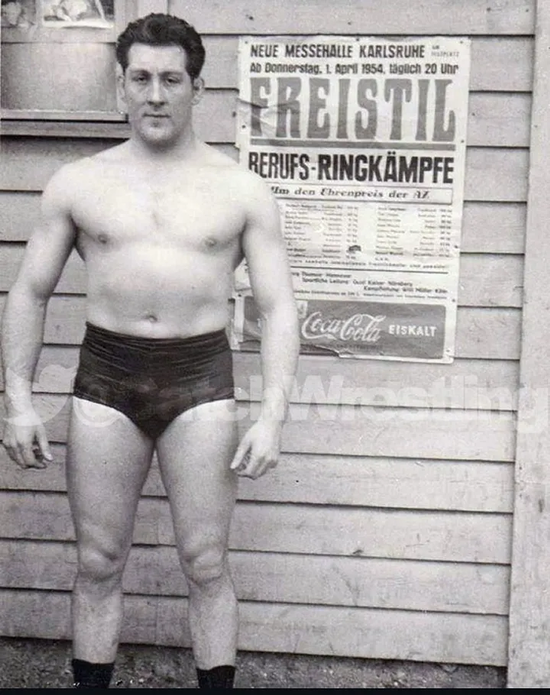
Perhaps equally defining was his physical limitation: Karl Gotch had only four fingers on one hand, the result of an accident on the docks of Belgium in his youth. The pinky finger of his left was ripped completely off, but this physical challenge would later become inseparable from his approach to grappling.
Forging Technique Through Limitation
While many wrestlers might have seen a missing digit as a career-ending handicap, Gotch transformed this limitation into innovation. I feel it reasonable to infer that this physical challenge forced him to develop compensatory techniques that would later become his trademark style.
While Gotch's grip strength was strong enough for clubs and maces, when traditional grips failed him, Gotch emphasized body positioning, leverage, and precise application of pressure. His legendary technical precision—his ability to execute hundreds of submissions with surgical accuracy—may have been born from necessity rather than preference.
The Birth of a Global Legacy
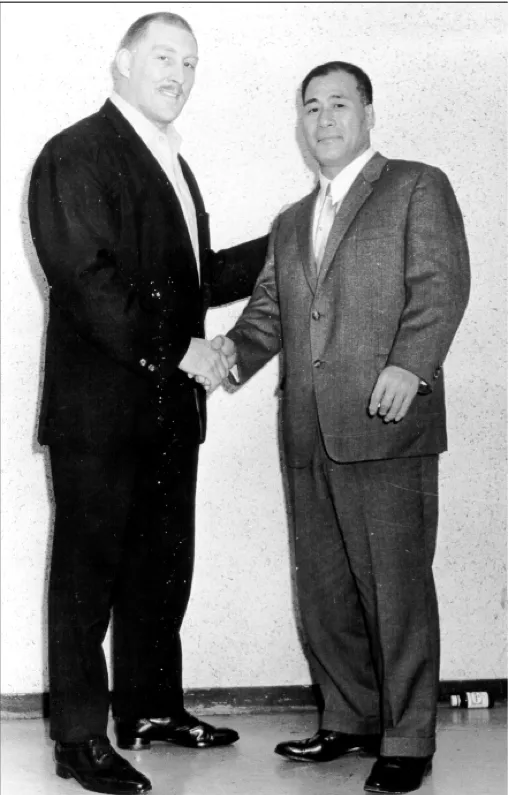
Gotch's experience in the concentration camp changed more than his body—it transformed his mindset. After facing starvation and witnessing humanity at its worst, the political machinations of American wrestling promoters must have seemed trivial.
This became evident in 1962 when an infamous locker room altercation with NWA champion Buddy Rogers changed his career trajectory. When Rogers tried to avoid defending his title against Gotch (fearing his legitimate skills), Gotch broke Rogers' hand in the ensuing fight. This incident effectively blackballed him from major American promotions but inadvertently pushed him toward Japan—where his greatest impact would be felt.
In Japan, Gotch found a culture that revered discipline, technical mastery, and stoic perseverance—values he embodied. Wrestling in the main event of the very first New Japan Pro Wrestling show (defeating Antonio Inoki), Gotch established himself as something more than a performer. He became a philosopher of combat.
The Architect of Modern Combat Sports
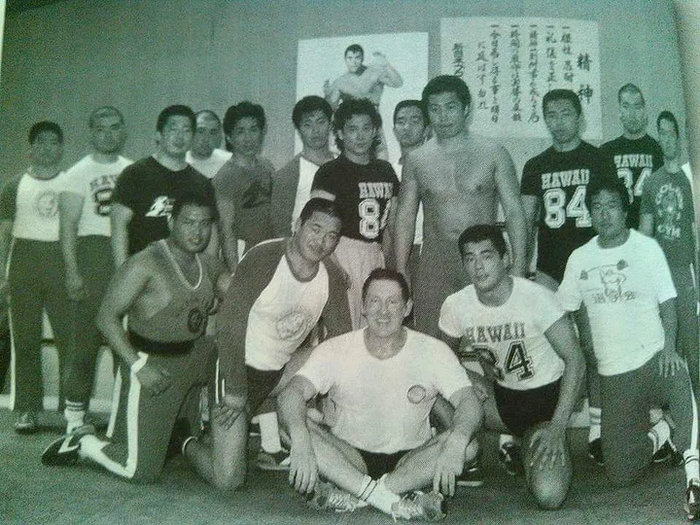
As head trainer at the New Japan Dojo, Gotch's training methods became legendary. His conditioning program—heavily influenced by Indian & Persian calisthenics and forged in his own need to overcome physical limitations—became known as "The Gotch Bible". His sessions were famous for being grueling, yet they produced generation after generation of elite performers.
The innovations credited to Gotch are numerous—the German Suplex with bridging hold, the Cradle Piledriver, the Tombstone Piledriver. But his most significant contribution was conceptual: the notion that professional wrestling could maintain its entertainment value while incorporating legitimate technique.
This philosophy directly influenced his most famous students—Antonio Inoki, Masakatsu Funaki, Minoru Suzuki, and Satoru Sayama—who would go on to establish revolutionary fighting promotions like Pancrase and Shooto. These organizations predated the UFC and laid the groundwork for what we now call mixed martial arts.
Legacy Written in Blood and Sweat
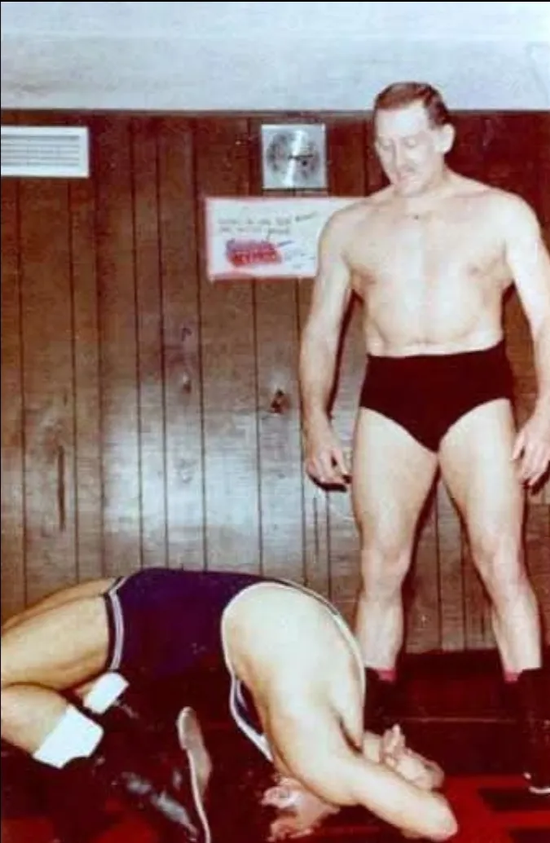
Today, every time a fighter executes a German suplex in the UFC or a double wristlock in a Jiu-Jitsu tournament, they're channeling a lineage that can be traced back to Karl Gotch—a man who survived humanity's darkest chapter with one less finger than his opponents.
His influence extends beyond technique. The values he instilled—conditioning as the foundation of skill, technique as the expression of intelligence, and perseverance as the ultimate weapon—have become axioms in combat sports.
When Karl Gotch passed away in 2007 at age 82, he left behind more than championships. He created a living tradition that continues to evolve through his students' students. From the horrors of a concentration camp and despite a physical limitation that would have sidelined lesser athletes, Gotch constructed not just a career but an entire philosophy of combat that reverberates through rings, cages, and dojos worldwide.
In a sport often defined by fictional storylines, Karl Gotch's real-life journey from concentration camp survivor to revolutionary figure with four fingers on one hand stands as the most compelling narrative of all—a testament to the indomitable human spirit and how our greatest challenges can become our defining strengths.